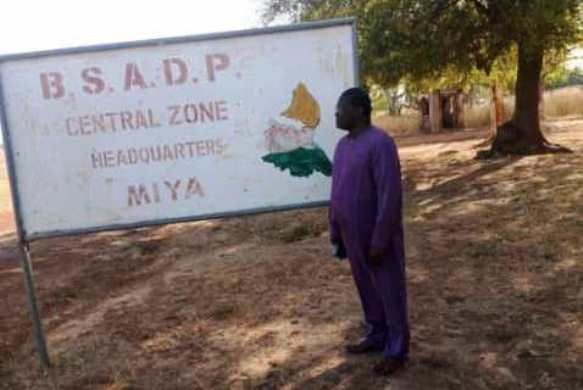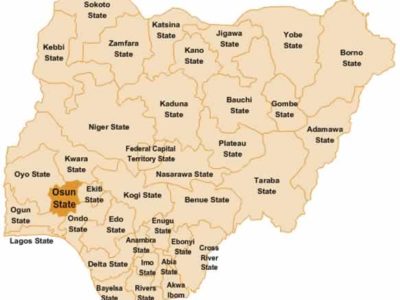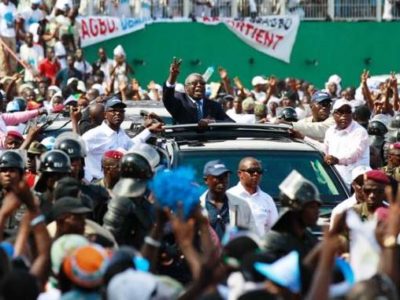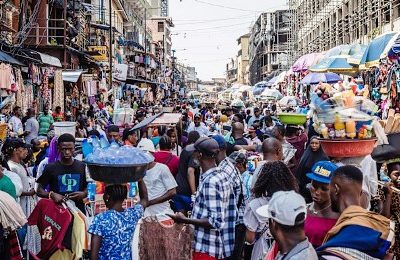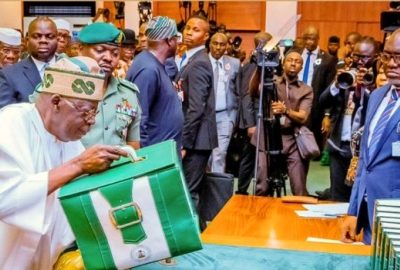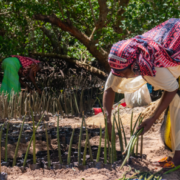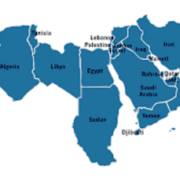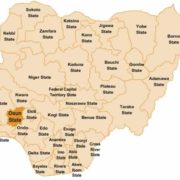By Samuel Zalanga , Professor of Sociology Emeritus
Some days ago I drove across parts of rural Bauchi State in northeastern Nigeria. I saw a government signboard by the side of the road and decided to casually stop and take a picture around it.
What I saw there is part of the global trajectory of development in the world. In the postwar period, there was strong support for the emergence of the welfare state in the Western world, which essentially meant the state was expected to play an active role in economic and human development i.e., dirigisme. Yes, the market will continue to play an important role in society but the market alone was not considered reliable in promoting equitable human development.
In the postcolonial countries of Africa and many regions of the developing world, the openness to have the state play an active role in promoting economic and human development became a major goal of the first development decade after independence, which was the 1960s.
The goal of transforming society from the bottom up
It was then assumed that the key issue is to promote economic growth because when the economy is growing, the benefits will presumably automatically trickle down and everyone will thrive and flourish that way. But after the first development decade, the work of Adelman and Morris (i.e., Economic Growth and Social Equity in Developing Countries, 1973) shows that while economic growth had impressively taken place in many developing countries, poverty and inequality had also widened. What that means is economic growth per se, while important is not a panacea.
This same situation and conundrum led Professor Dudley Seers to come up with a New Meaning of Development that says, the questions to answer about whether a country is developing or not is not just whether economic growth is taking place or not, but the following: a) What is happening to poverty? b) What is happening to inequality? c) What is happening to unemployment? According to him, even if the economy of a country is growing, if inequality, poverty and unemployment, remain the same or are worsening, then that economy is growing, but it is doing so without equity. Thus in the 1970s, Growth With Equity became a very important issue in the struggle for development.
The sign BSADP in the picture means Bauchi State Agricultural Development Project. It was initiated during the era of active state intervention in the economy and society to promote human development. Agricultural development projects were then widespread across Nigeria. The goal was to transform society from the bottom up. It was around that period that Nigeria came up with its five goals in the Second National Development Plan and BSADP is supposed to be one way that some of the five development goals would be achieved.
The Five Development Goals were creating the following:
- a) A united, strong and self-reliant nation
- b) A great and dynamic economy
- c) A just and egalitarian society
- d) A land of bright and full opportunities for all citizens
- e) A free and democratic society
Unfortunately, after the neoclassical counter revolution in economics spearheaded by some economists at the University of Chicago and the work of Mont Pelerin Society, neoliberalism did not only takeover but became hegemonic and the new secular religion of humanity. State intervention in the economy and society became considered as inefficient and a kind of sin, in the sacred canons of the market. The government is supposed to play a limited role and also privatized, if not totally abandoning previous efforts like the BSADP to promote grassroots rural development and raise the level of human development of the people.
Right now, the BSADP is abandoned. The dirigiste state has retreated. The masses are on their own. Everyone is expected to raise himself or herself by their bootstrap. The level of human development in some rural areas of Nigeria today is worse than what it was in the 1970s. According to recent reports, 75% of the rural population of Nigeria and over 30% in urban centers are living in poverty. Overall, the poverty rate of the country is around 62%
Nigeria; Religions do not seem to have serious impact on public morality
Nigeria is one of the most highly religious countries in the world. But the religions do not seem to have serious impact on public morality, which would ideally shape the structure and functioning of public institutions. Many people now do not even know or remember that Nigeria had set some important five development goals in the Second National Development Plan.
From what I have been trying to say, the signboard even though in rural Bauchi State in embodying debates and trajectories in approaches to development at the global level, beyond Bauchi State and Nigeria.
Has the wisdom of Afrocentrism gone on sabbatical?
Many scholars talk about Afrocentrism as a way of honoring Africa. I have no objection to that. But my question is: given all the stagnation and worsening of human development among many African people, especially those that are least advantaged, has the wisdom of Afrocentrism gone on sabbatical? If so, when is it going to resume inspiring and guiding the human development of African people.
To me, what I saw on the signboard is an example of how the Local is connected to the Global. The key issue is to be able to track how the two are connected. What I saw is a great source of lamentation and a huge embarrassment to my youthful idealism, which is about how to use knowledge and state institutions to contribute towards creating a more just and fair society for all, but especially the least advantaged people, i.e., The Wretched of the Earth. Well, today, even the word justice or equity is for some people something utopian.
Yet, Saint Augustine in “The City of God” said, without justice in a society where there is institutionalized and structured inequality such is in the Roman Empire, we are all like a gang of robbers since the powerful and rich can trample about the rights and dignity of the powerless and poor, like a pair of sandals and get away with it with impunity. Lamentation!

